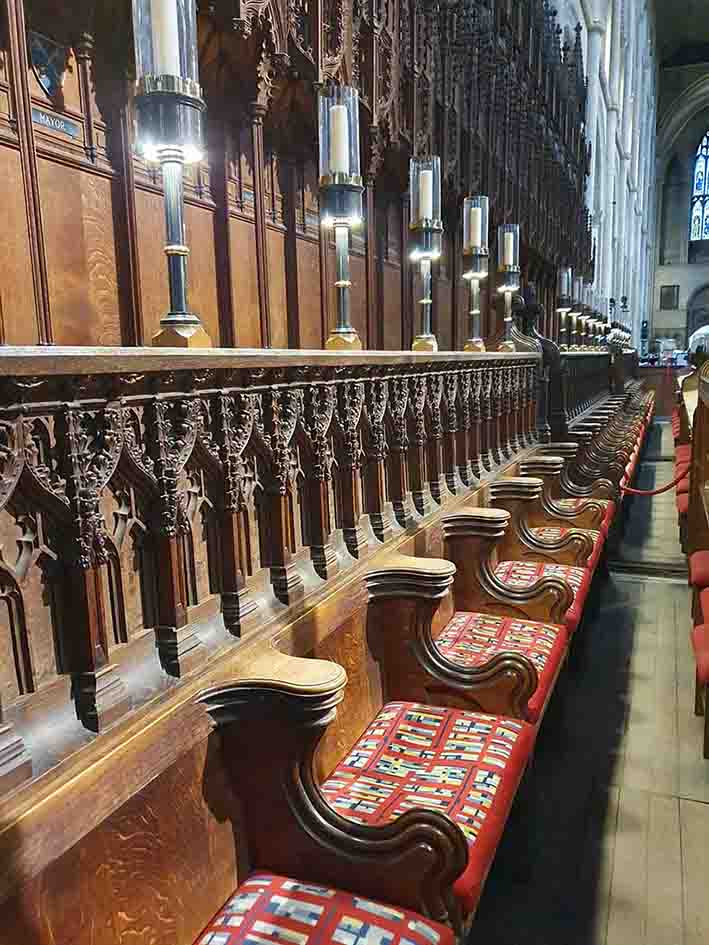
Our history lives on in our language. We have Saxon words for livestock, French ones for meat – cow-bœuf .. sheep-mouton .. pig-porc – because the conquered Saxons merely tended what their Norman overlords got to eat.
Here in Peterborough Cathedral, a set of panels lists all the abbots before and after 1066. Every name prior to the Conquest is Saxon, all but one of those after it French or Latinate.
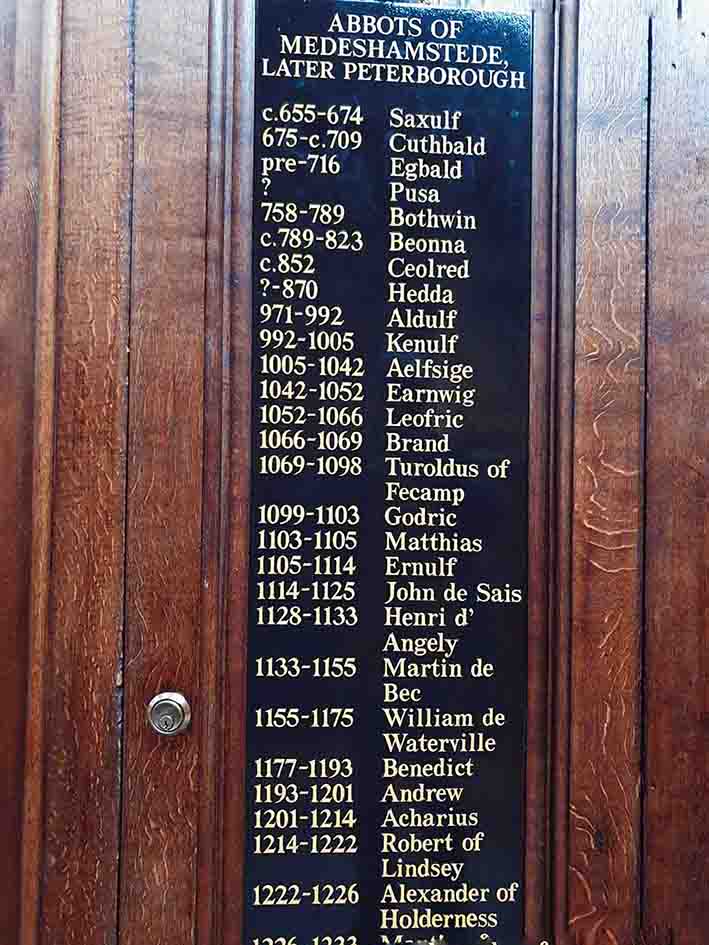
I leave cathedral and ecclesiastical quarters to cross a spacious square in search of museum and gallery. A watery midday sun filters half-heartedly through the veil of fenland mist hanging over the city since daybreak. As I take in its feeble rays from a municipal bench, a Born-Again swoops in to hand me a small glossy with the Gospel message. Tired after too brief a night in a layby on the A1, I lack the presence of mind to refuse it.
The accent is east Europe, the face a study in hardship and neglect; of years on the street and I dare say of addictions now, like Satan, firmly behind him.
And when He knew for certain
Only drowning men could see Him
He said, “All men will be sailors then
Until the sea shall free them”.
Leonard Cohen – Suzanne
These make ideal waters for fishers of men, catchers of broken souls which, once made good, repay their re-deemer with fierce loyalty. I give his offering back. He’s ready for that:
You turn your back on God?
Don’t think there is one.
Can you prove that?
No. Nor that there aren’t giant lizards ruling earth from Mars. It’s hard to prove a negative.
What do you believe in then?
Where to start? But he narrows it down for me.
How did we get to be here?
I think Darwin got it more or less right.
Ah. That’s just a theory.
So are relativity and thermodynamics. We do open heart surgery and cross oceans at the speed of sound on the back of theories.
I don’t believe in theory; only the evidence of my eyes. And I haven’t seen one animal turn into another.
Knowing I’m licked I give a bright smile, offer my hand – which he takes – and tell him to have a great day. As I walk away I hear him over my shoulder.
Why don’t you stop lying to yourself?
Mock if you will but an age where God gave way to shallow consumerism in wrappings of half-truths has atomised and made weaklings of us; cynics not so much drowning as adrift on life-rafts too frail for the weatherman’s omens. The man’s grasp of evolution and epistemology is poor – hardly his fault – but to deride its low explanatory power is to miss the point. Those who see religion as rendered obsolete by better accounts of life’s origins misjudge the breadth and reach of its appeal. Unless I’m a mile out in my assessment, bible and Jesus really did redeem this once drowning man.
Not that I’d want to share a jail cell with him, mind. Or even a bus seat for more than two stops. But would he be more likely or less than my sophisticated pals to risk his own life to save mine in an inferno? More likely or less than I’d be to do as I would be done to?
I doubt I’ll ever know but I’ve learned to respect the power of simplicity. Then again, his parting shot spoke of egoic need to have the last word. Ego is division, division complexity. Tricky.
*
I spend close to three hours in the museum. It’s currently showcasing water colourist Wilfrid R. Wood, who in the ’30s and ’40s painted street scenes of a Peterborough fast disappearing.
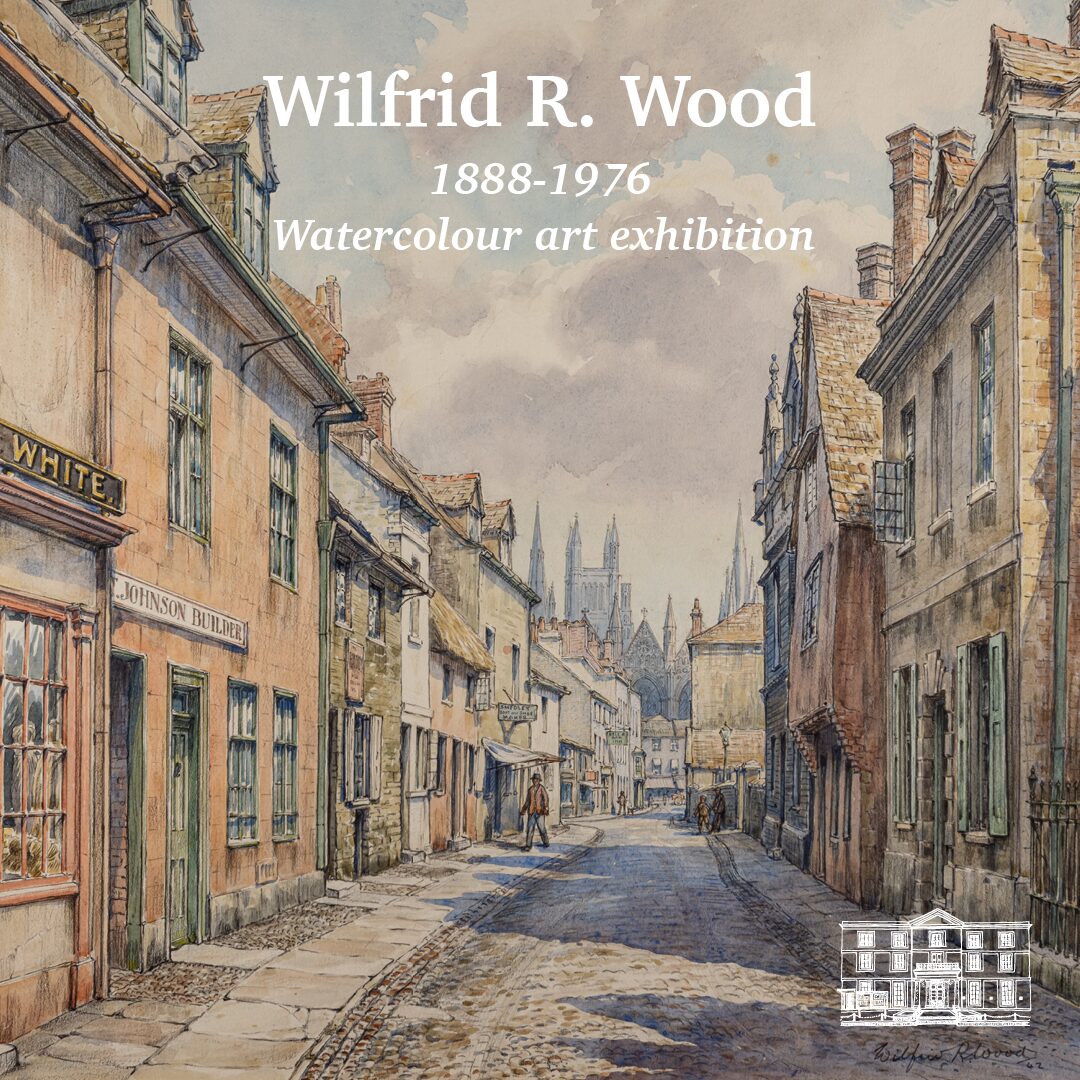
It’s been running since January but will finish on April 6. Go see it if you can.
Other goodies include a walk from past to present. Experience the city’s rise – aided by Dutch engineers who in Tudor times drained the fen, and by its location where Ermine Street – name one thing the Romans did for us! – bisects east-west routes linking the bulge of East Anglia to the heartlands of Black Country and Shires – from a wetland of eel trappers and peat cutters to buzzing metropolis.
And the age of steam? That too did its bit …
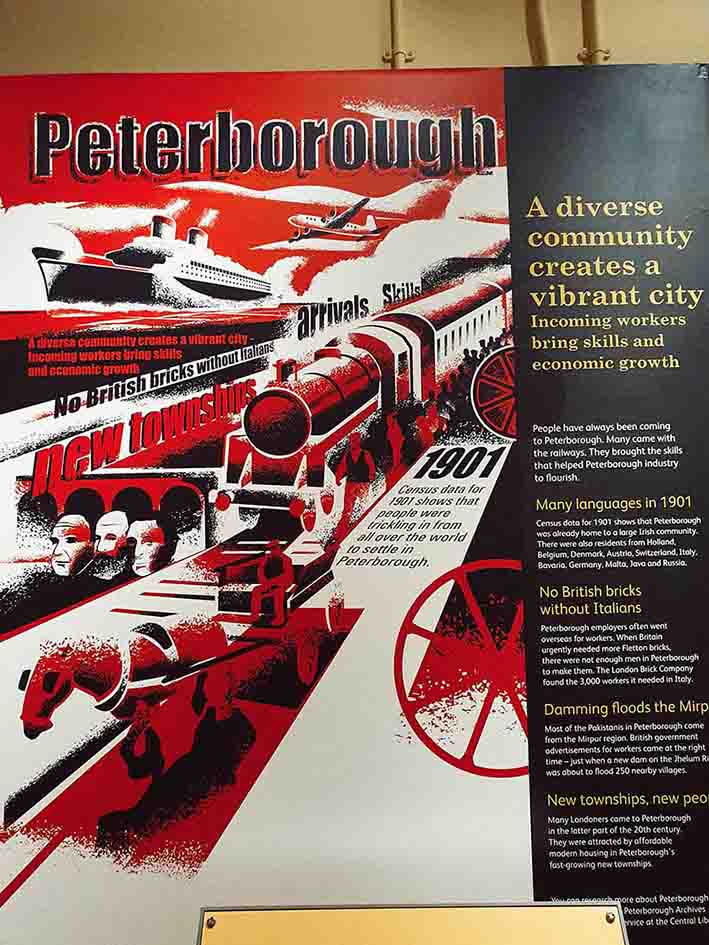
… while for over half a century it’s amused me – my first job was in a brickyard, and as a youth I passed a cold night or three (the heat from their kilns a call to the homeless, the locked out and the budget traveller) in yards as far flung as Sheffield and Tito’s Yugoslavia – that the so-called London Brick Company was all the while hiding ninety miles away in Peterborough.
A touch of fifties modernity for the up and coming professional classes, this kitchen has a meat safe (upper right) but can the new-fangled refrigerating machines showcased on I Love Lucy – and other conduits for the American dream at the dawn of television – be far behind?
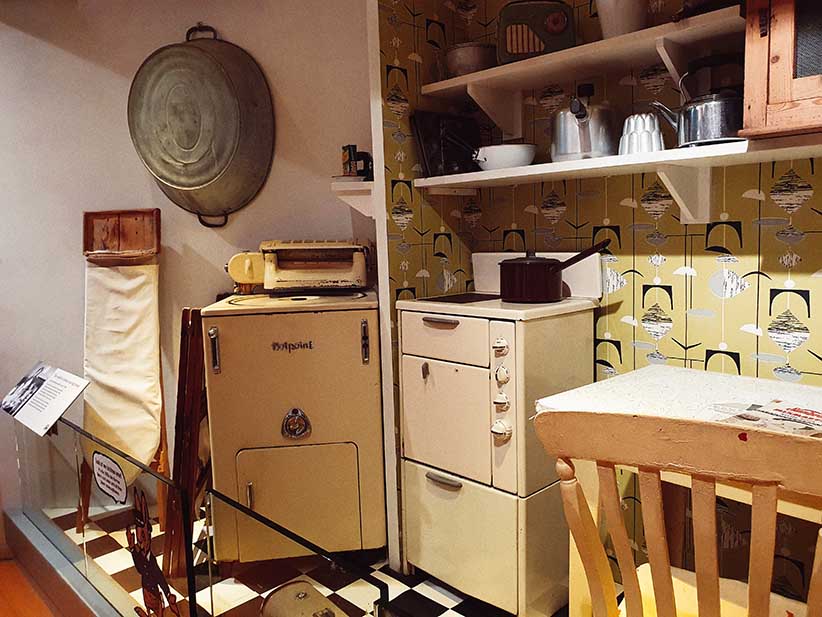
Guaranteed to get the attention of the supervised schoolchildren arriving just after me was the operating theatre. Yes, the museum building is a former infirmary and for this iconic exhibition they pulled out all the stops. Through blood stained sheets, tools of terror and air thick with the stink of disinfectant, a concise history of pain beyond our widest measure screams out at us.
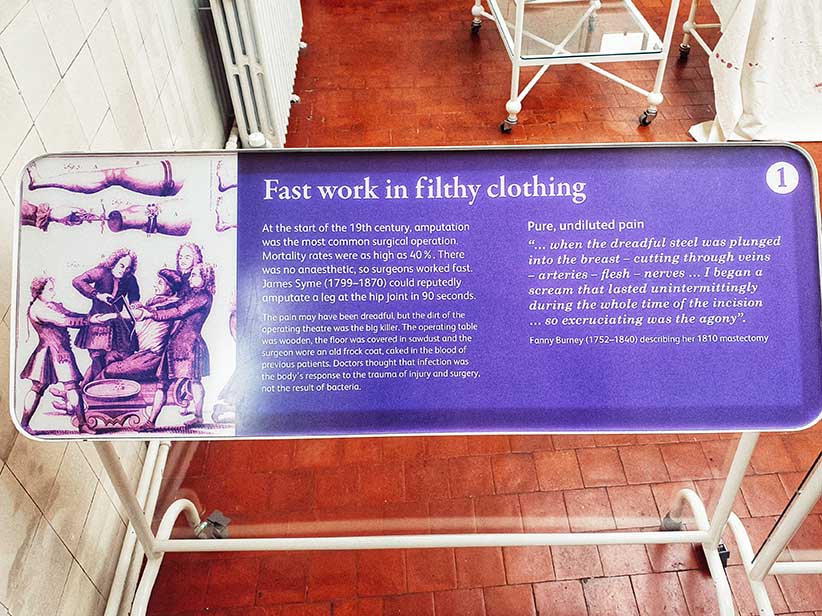
Delightful stuff. I get out before rush hour to take a bus back to the van, on a big housing estate north of the centre. From there I drive to the Showcase Cinema, east of the city, arriving in time for the 5pm screening of Wicked Little Letters. Based on real events and a shedload of licence, it’s light fare but served with lashings of vim: strong performances from Olivia Coleman, Jessie Buckley and Timothy Spall; sterling support from the cast. I couldn’t put a name to the bluffly misogynist desk sergeant till I was back in the van. There it hit me: the vicar – “Vix” – from the brilliantly tasteless Daisy May Cooper series, This Country.
Earlier my friend Fay had emailed from Spain with a link to a Guardian piece on MI5 criminality in the Miners’ Strike. In reply I’d added that I was in her home town. Now, switching my phone back on, I see a message that I must visit her Anglo-Indian mother. I tell Fay I’ll make contact in the morning, then head for a nearby industrial estate to fall in behind a line of sleeping lorries on a dim lit lane. Teeth brushed, mattress inflated, I burrow into down bag and duvet for eight of the vitally needed, then in the morning – after washing in a disabled loo in Sainsbury’s but still looking every inch the down and out – present myself at Audrey’s door.
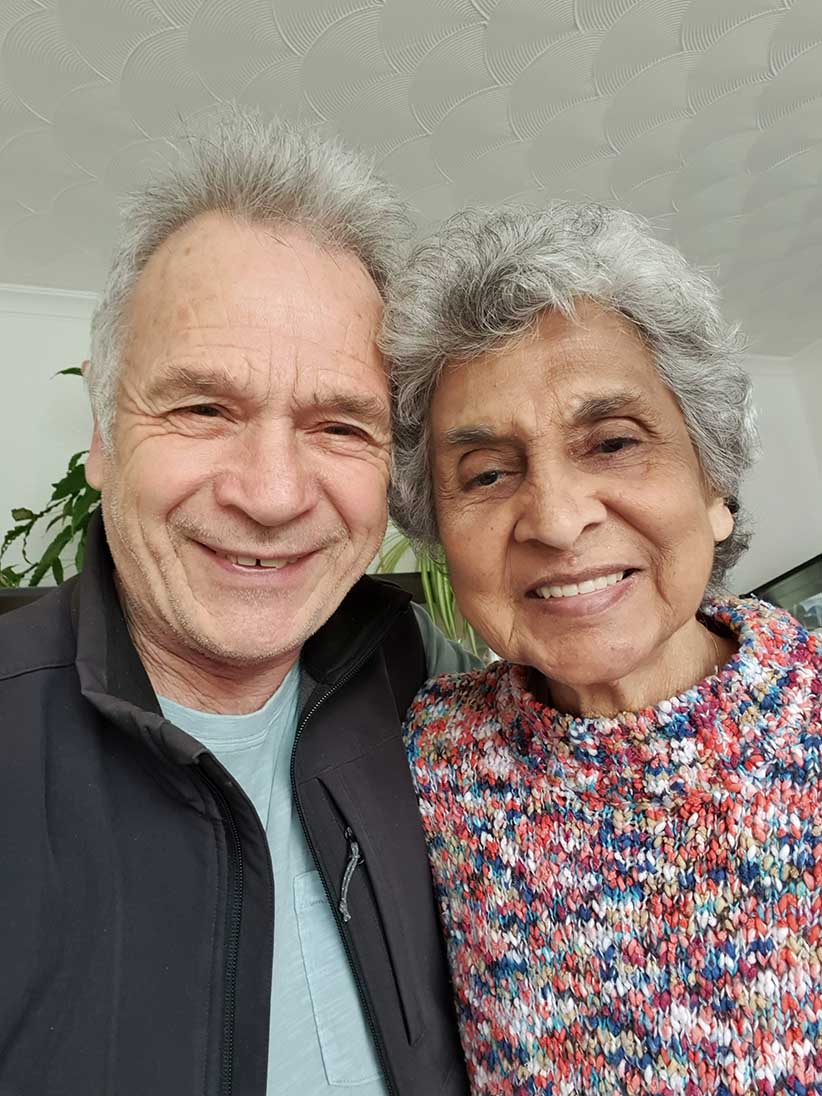
Would you believe this lovely lady of Secunderabad is 91? Instantly at ease with one another, we talk non stop for two hours – she loves that I love India – before I take my leave, promising and meaning it to return.
Yesterday I’d checked out this park4night spot on the Nene, upstream – i.e. west – of the city.
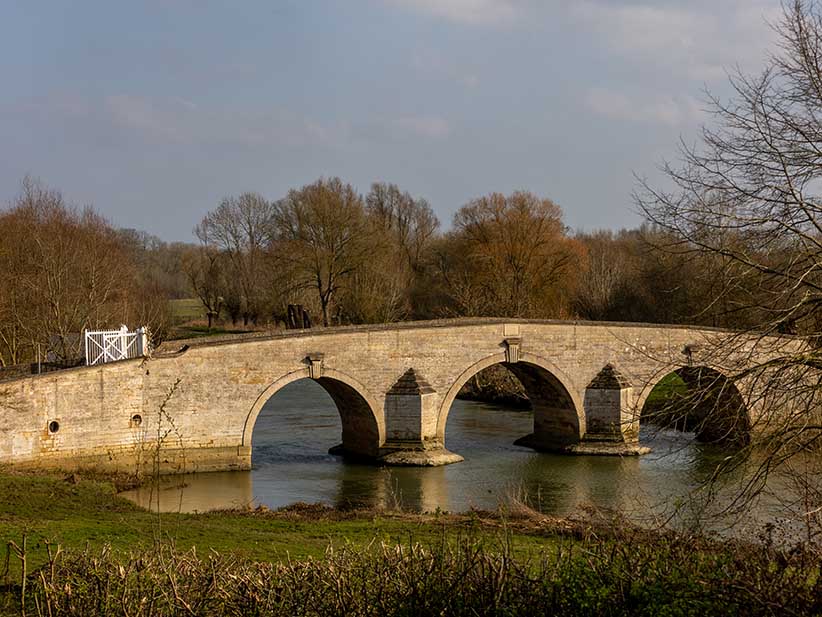
Just off-camera at lower left are several after-dark pitches. I’d planned on strolling an hour or two before moving southeast to Ely, but see enough here to stay my wandering soul.
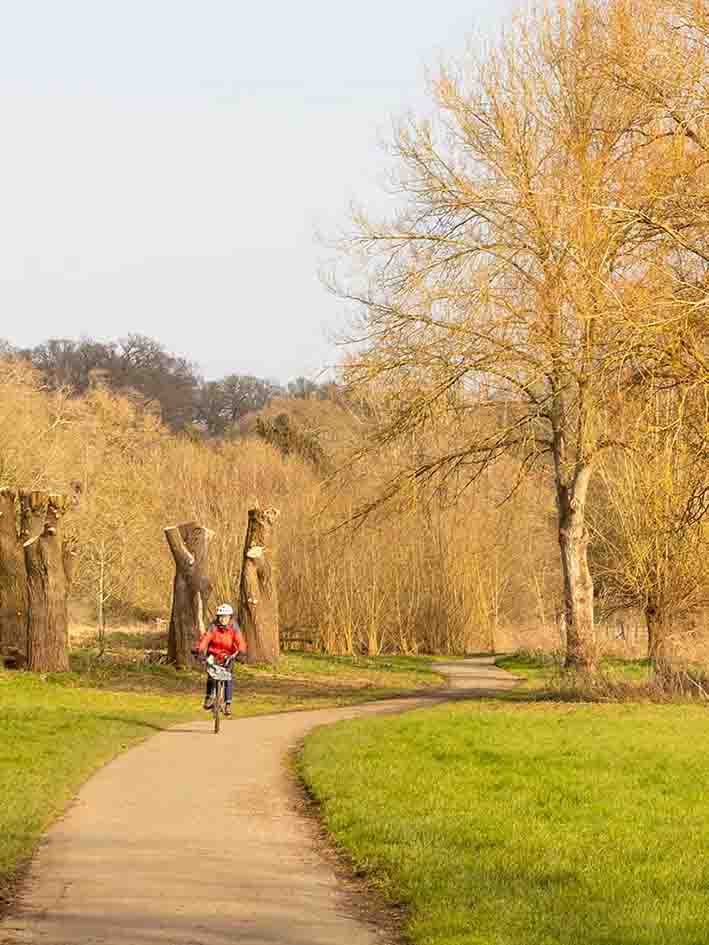
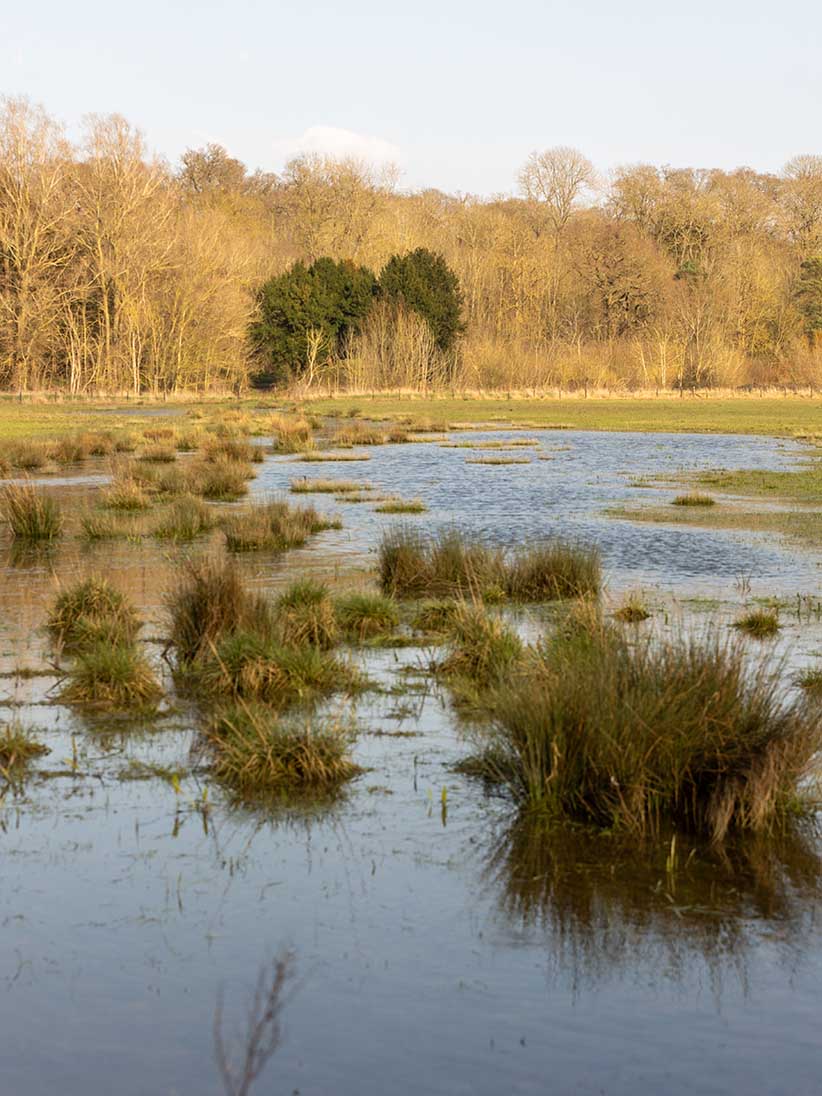
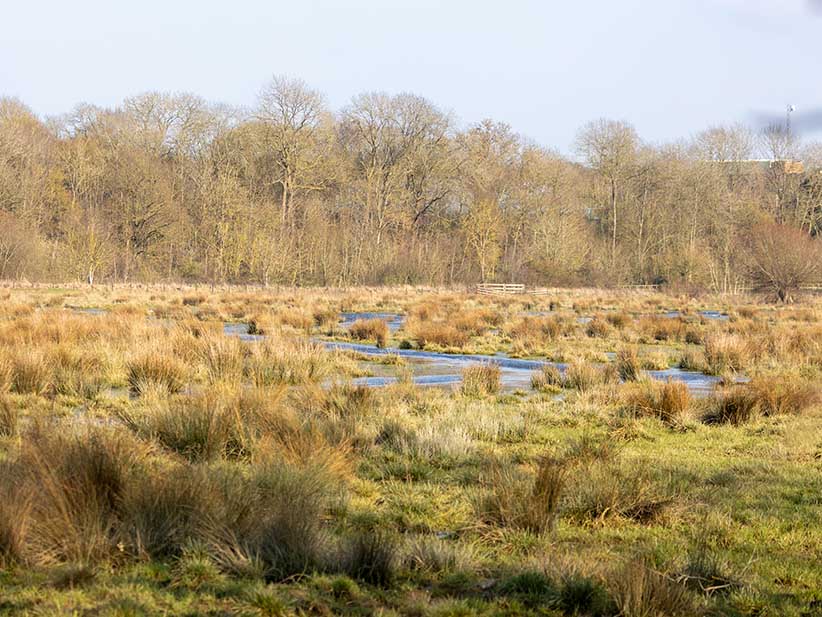
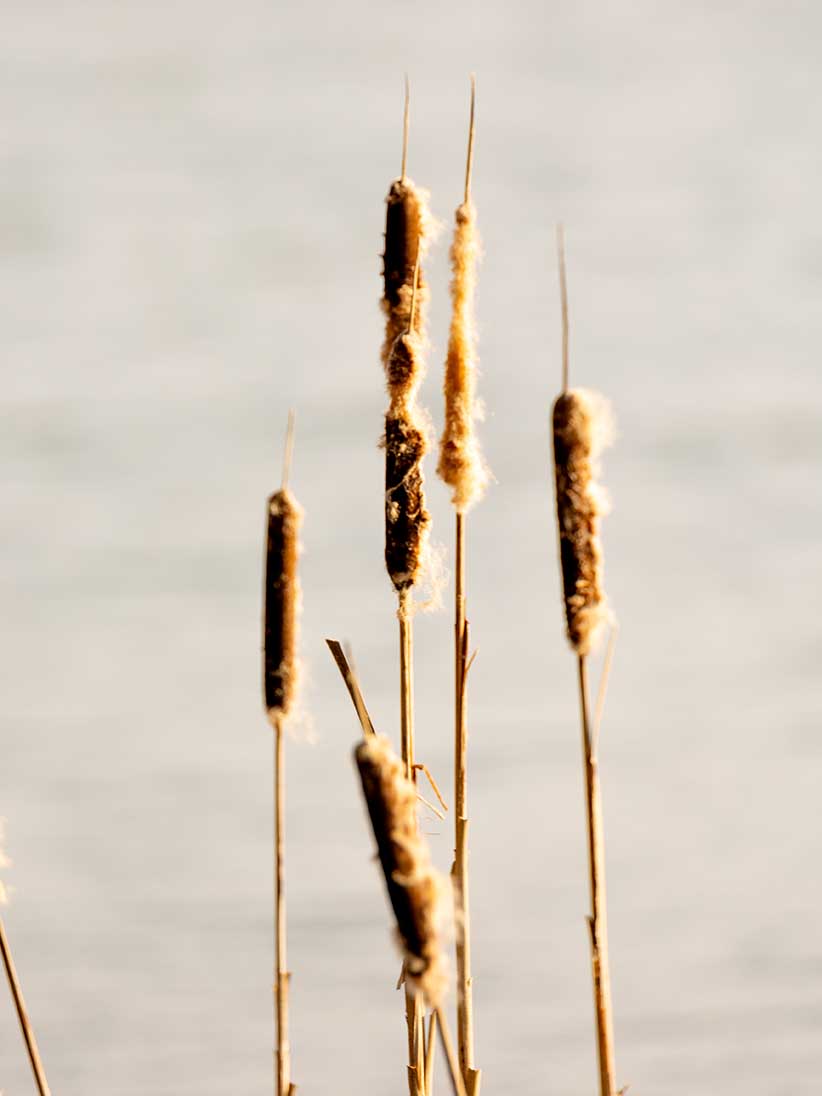
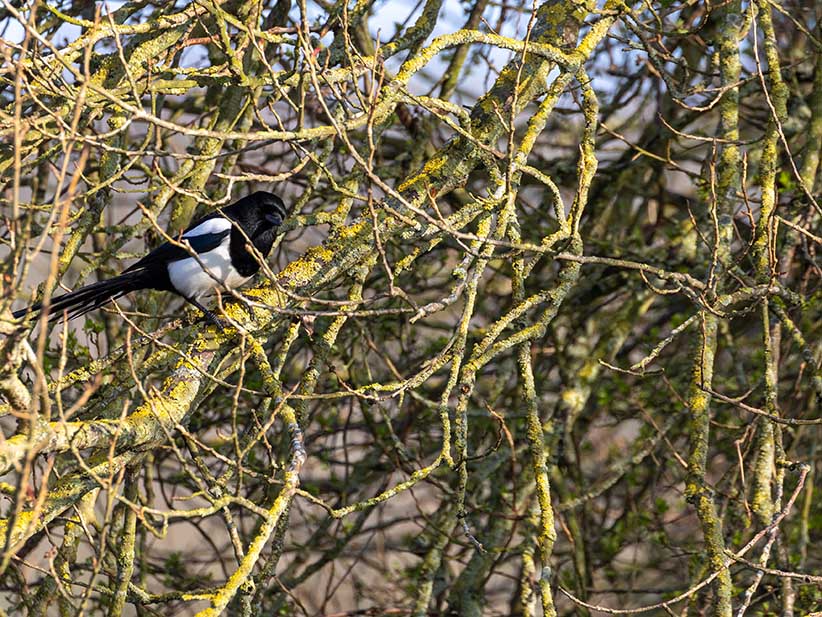
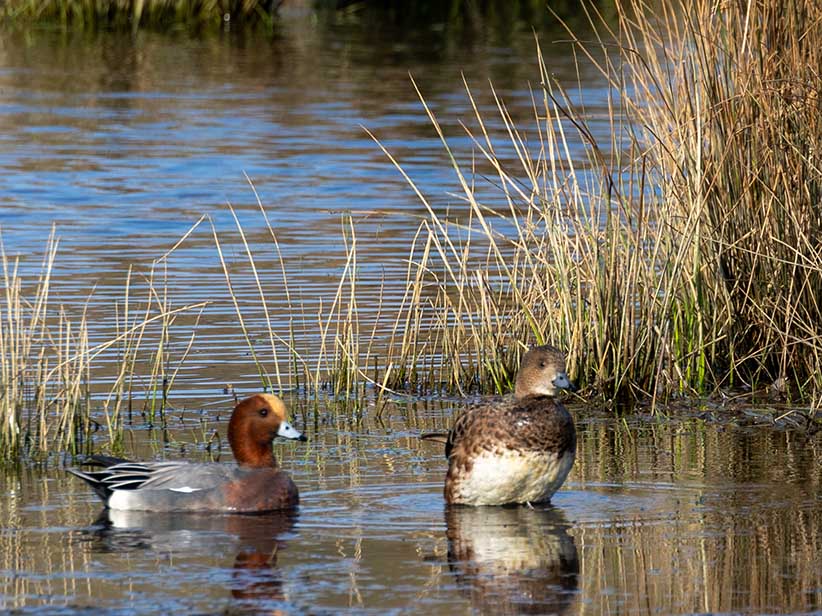
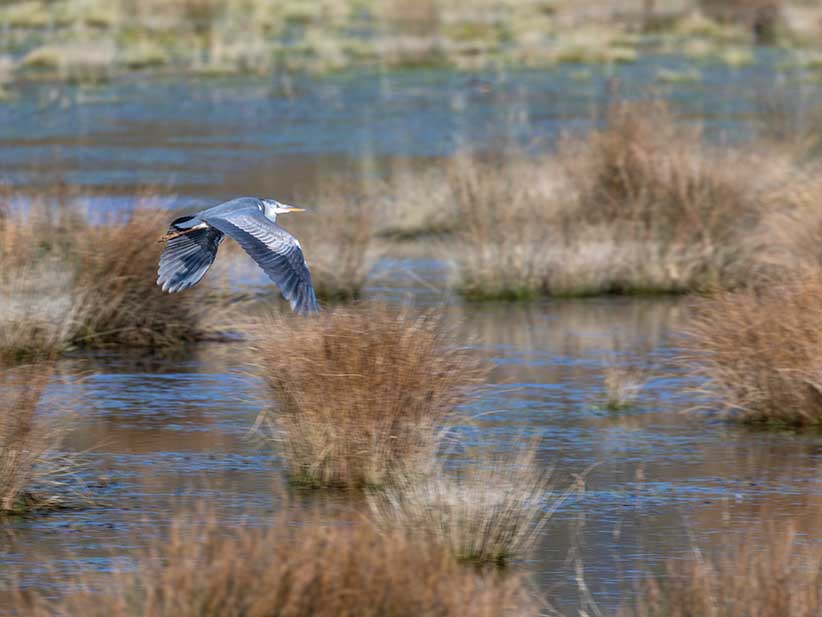
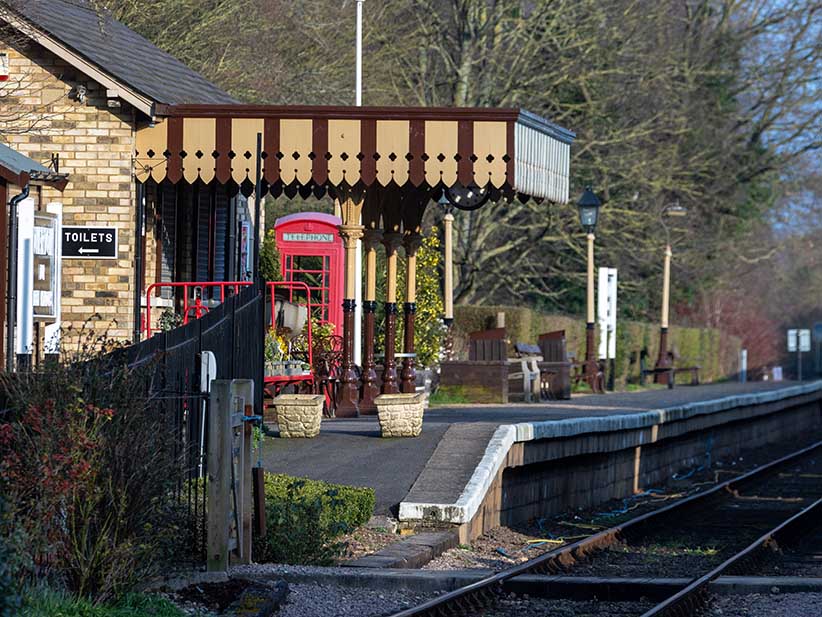
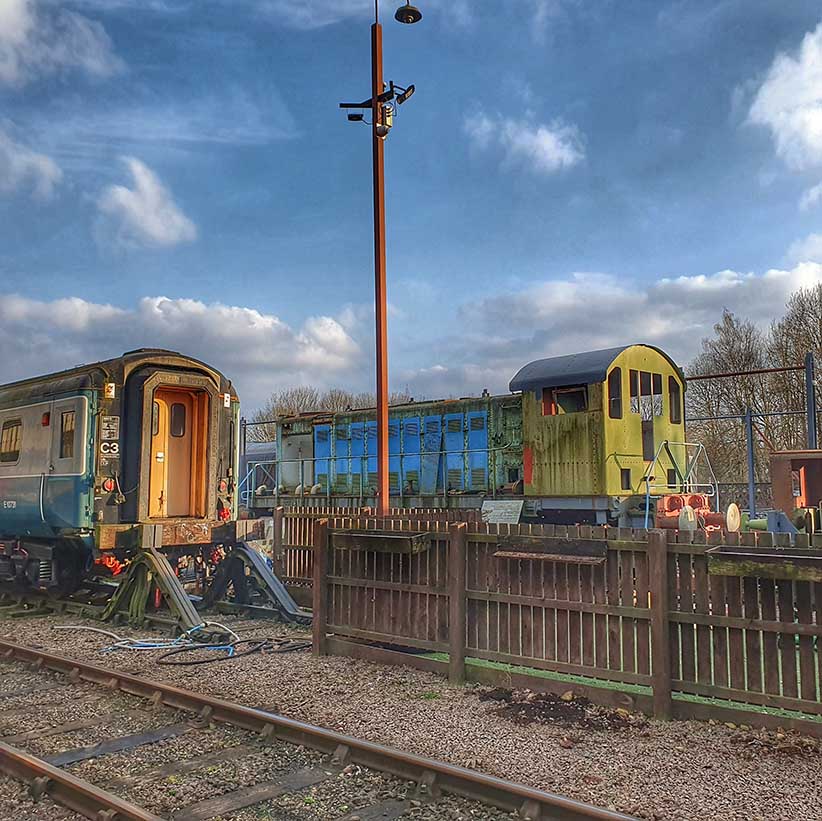
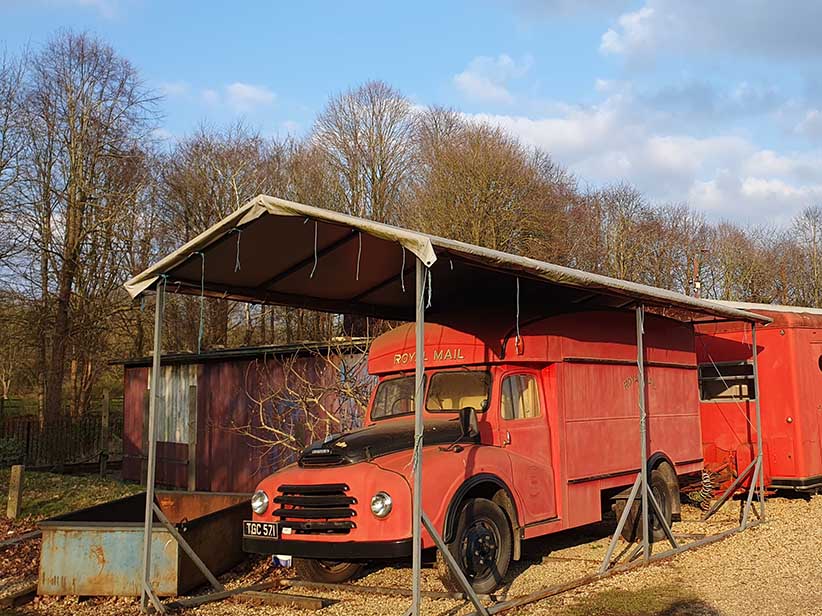
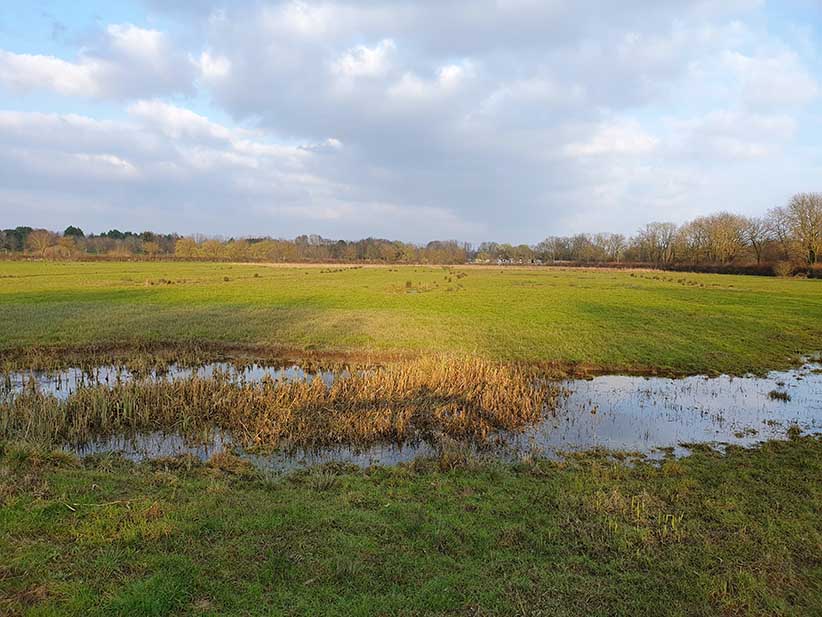
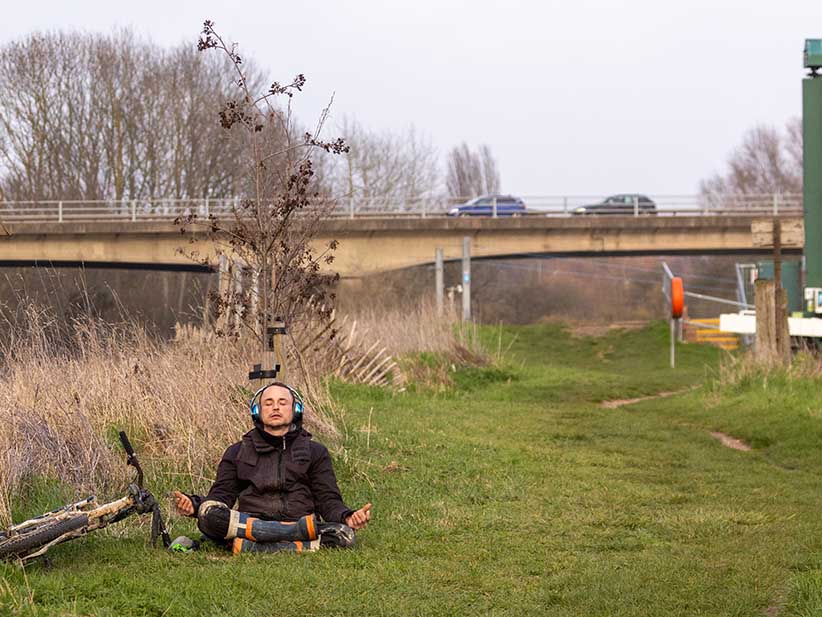
Spacing out to a tune or two of trance? Having spent thousands of hours at it – yes; I’ve done the sums – I know meditation when I see it. I guess those are ear defenders but most of the din isn’t the thrum of the A1260 crossing the Nene. It’s the roaring turbulence behind and to his left.
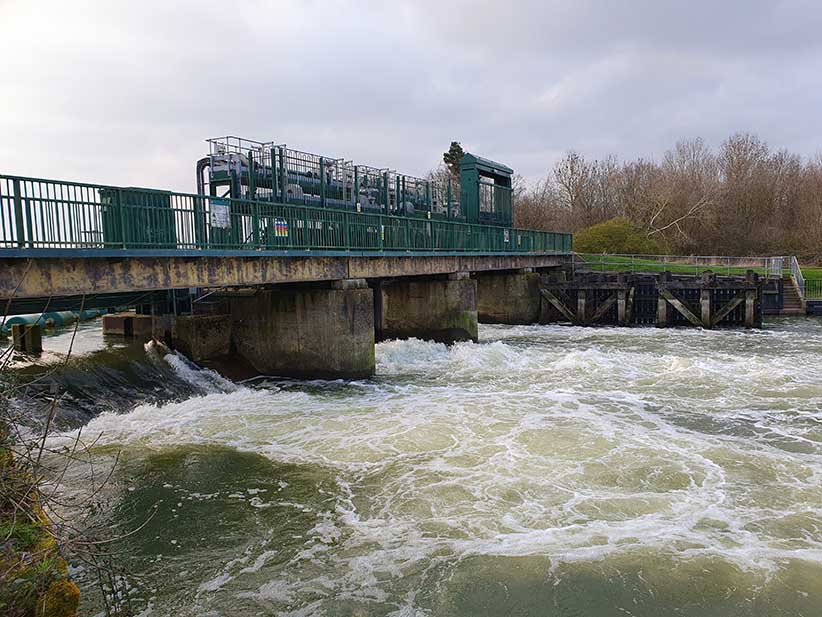
Me, I’d have dived in – metaphorically speaking – to make that elemental roar my mantra.
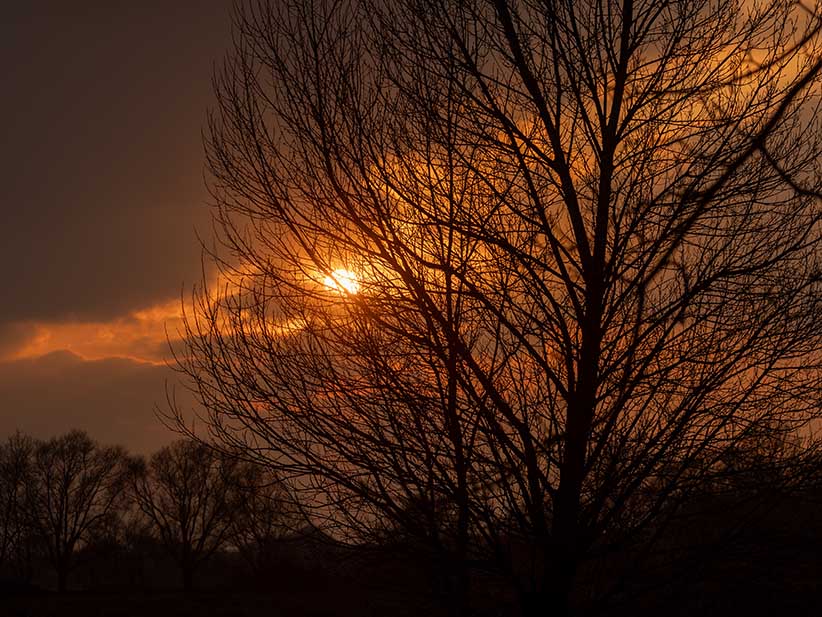
After overnighting a stone’s throw from that centuries old bridge, I wake up to sunlit brilliance and an emailed request to write copy for delivery on Tuesday morning. I could head into town again to set up office – I always travel with a laptop – in Wetherspoons; favoured not only for free wi-fi, mains power and coffee refills but for frequently classy premises staffed by folk who couldn’t care less that I stay hours on end for a £1.30 outlay. But I’ll be home tonight, so start of play on Tuesday leaves me all of Sunday and Monday to deliver good copy. I head northward to Stamford, on a Welland tasked – like Nene, Great Ouse and from the north the Witham – with topping up the Wash.
George Eliot’s Middlemarch was filmed here. You can see why.
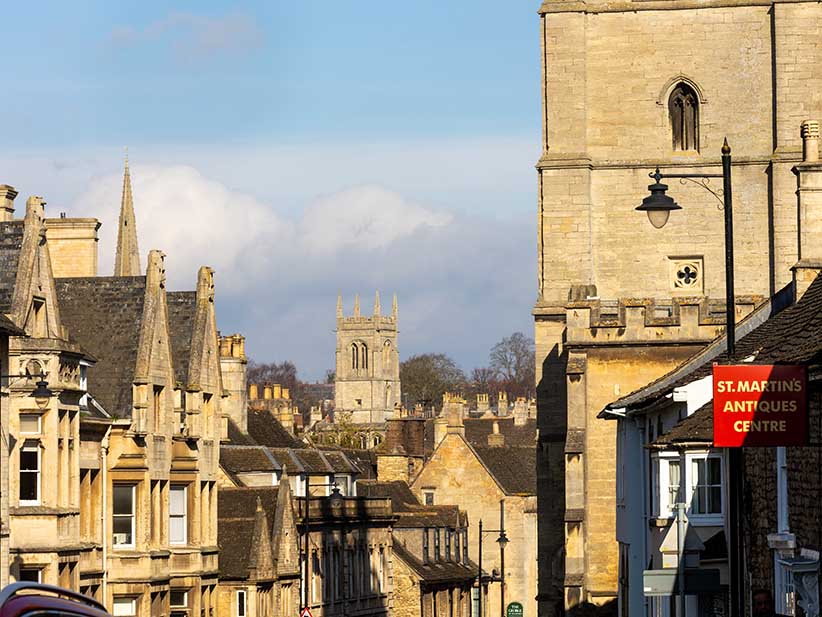
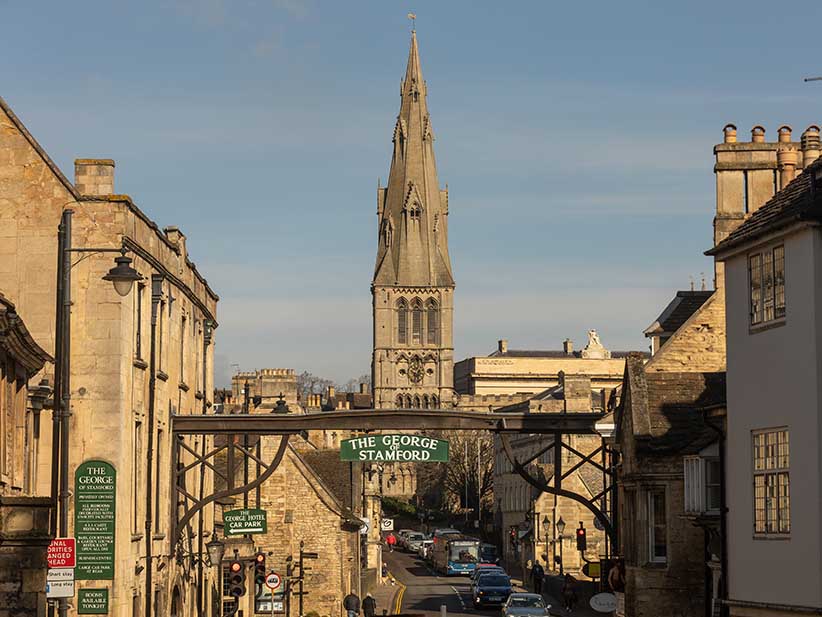
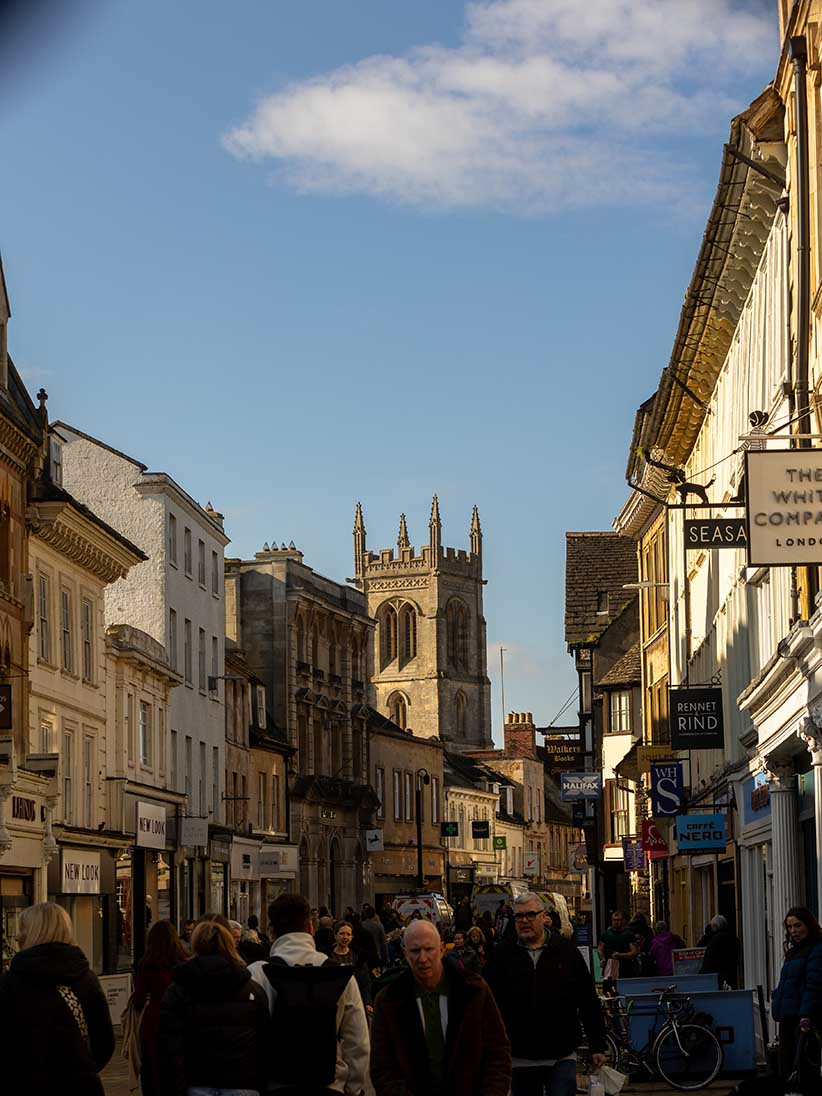
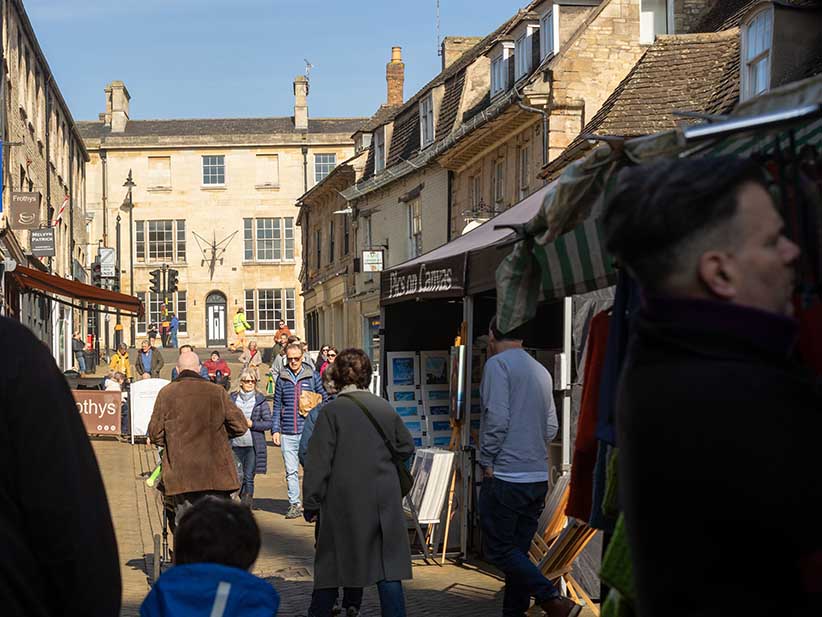
Here the Gwash crashes into the Welland, a mile downstream of the town.
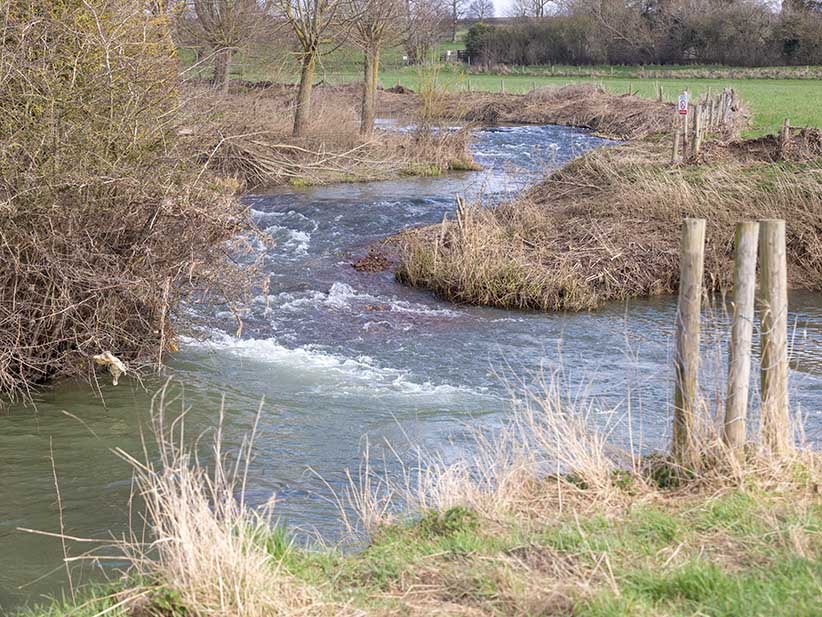
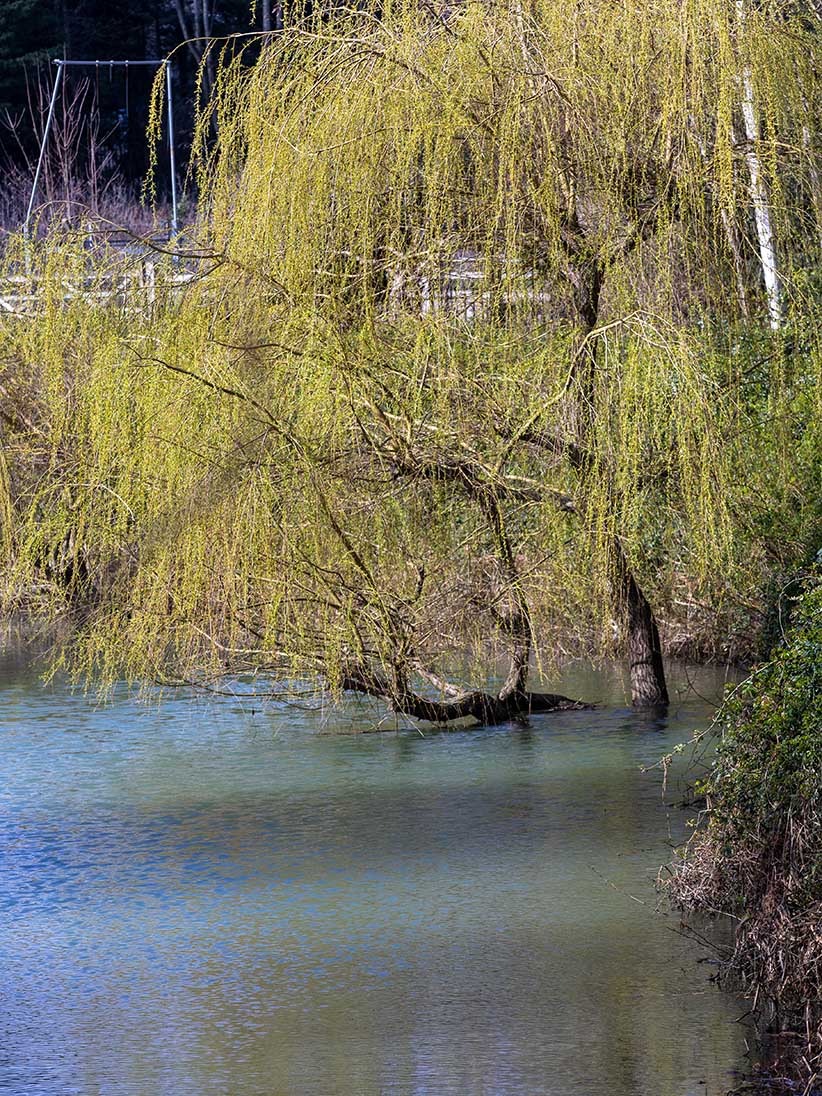
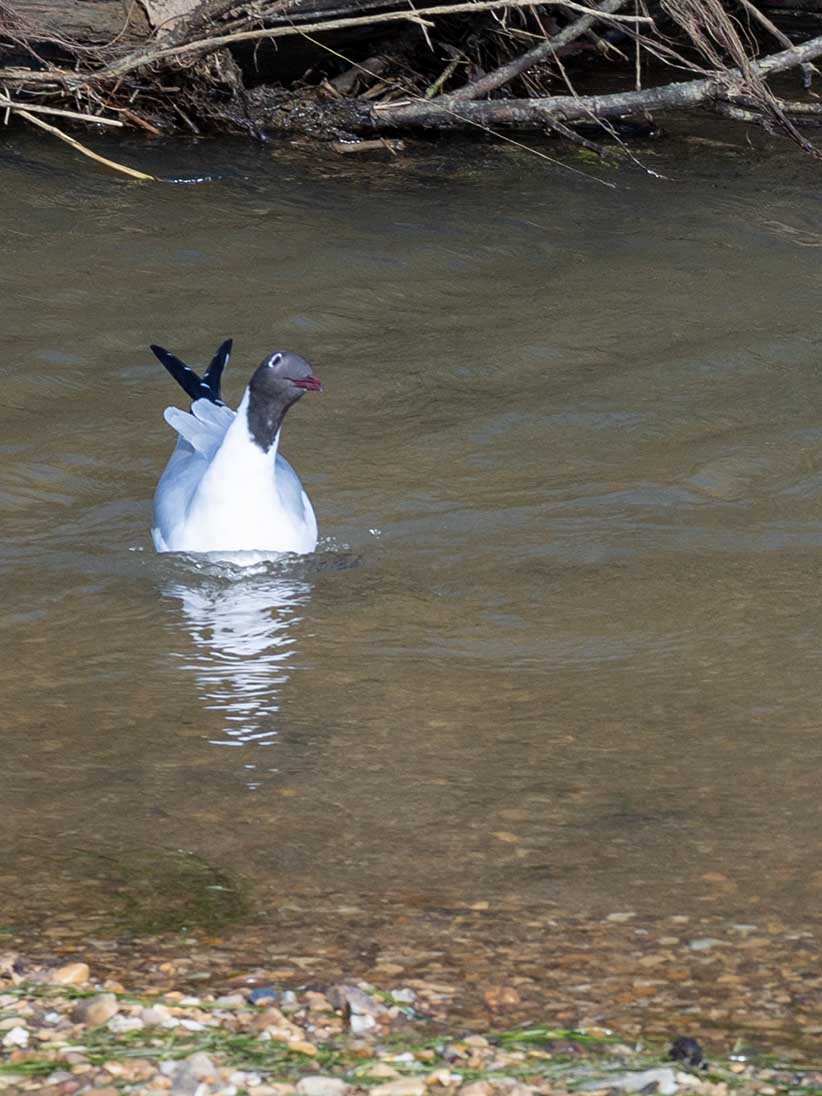
Back in town after my stroll down river, I eyeball a succession of fit looking pubs …
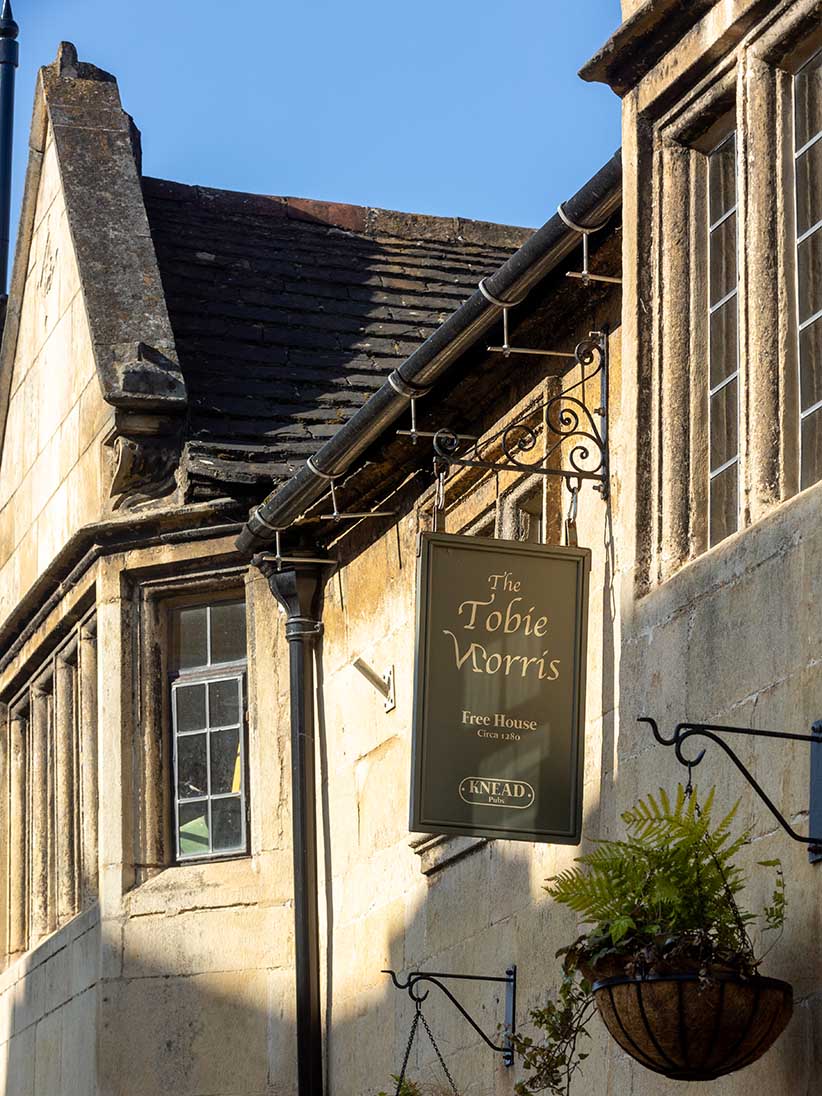
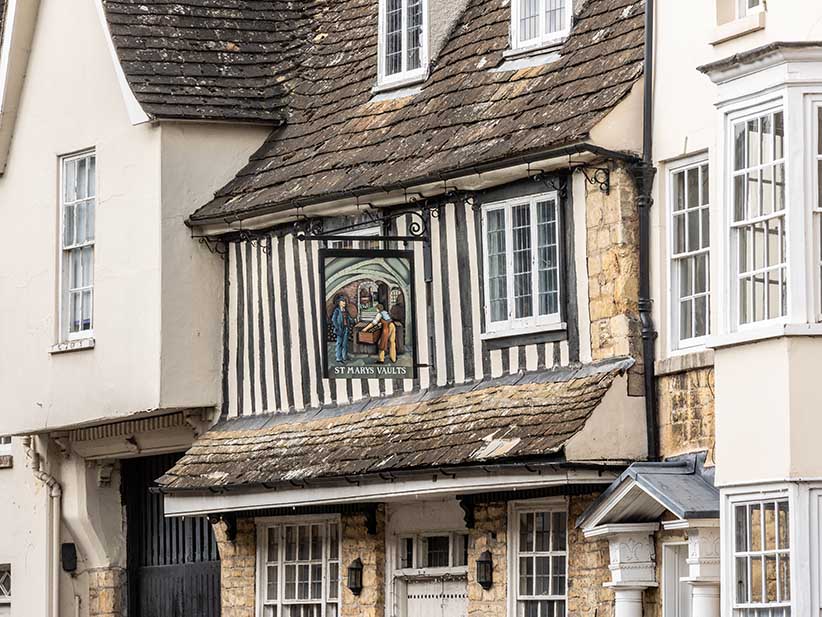
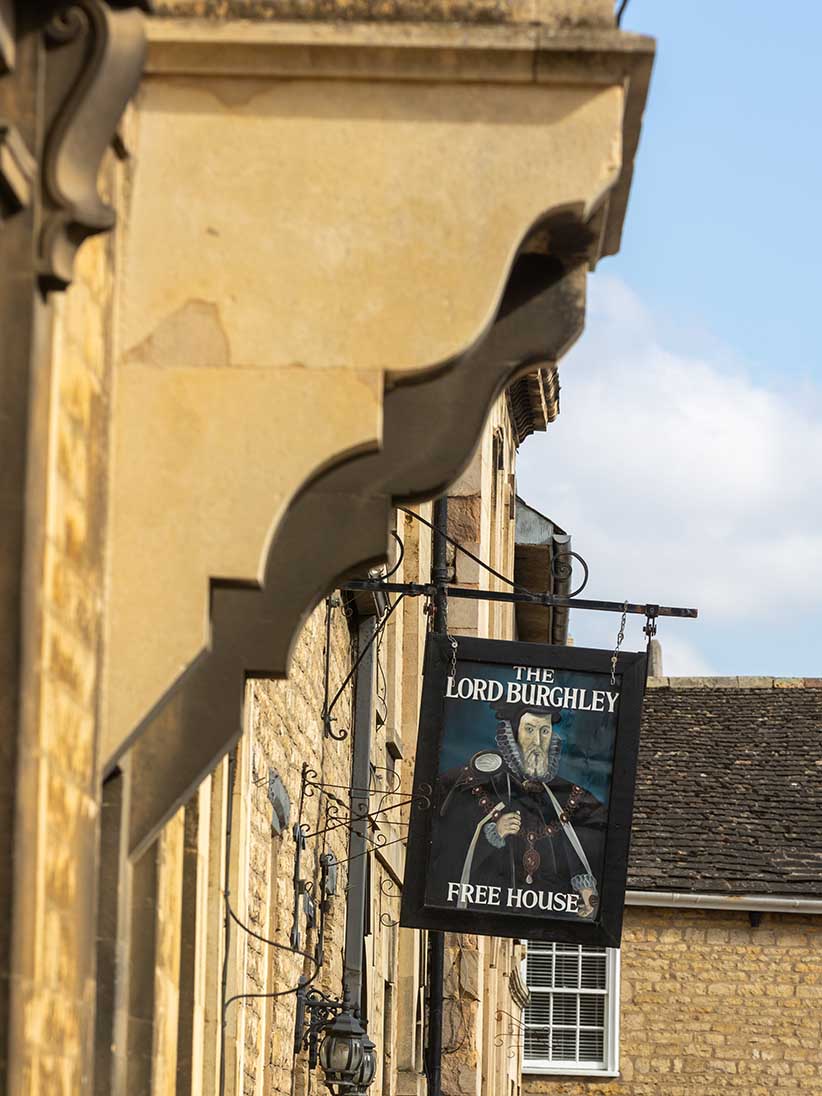
… amble streets and passages I’m sure could tell a dark tale or two…
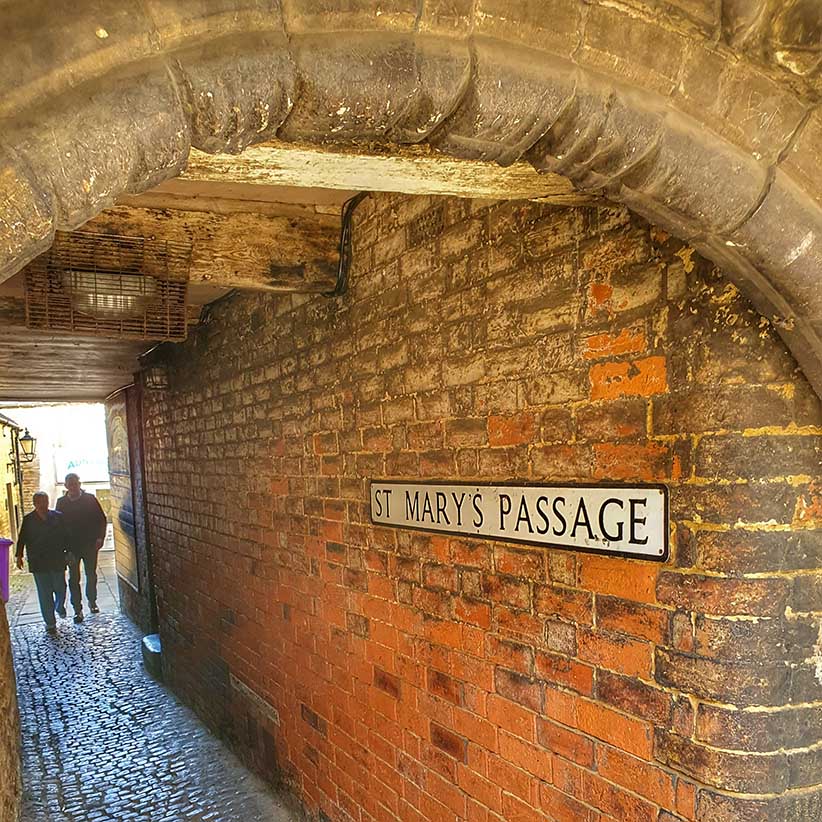
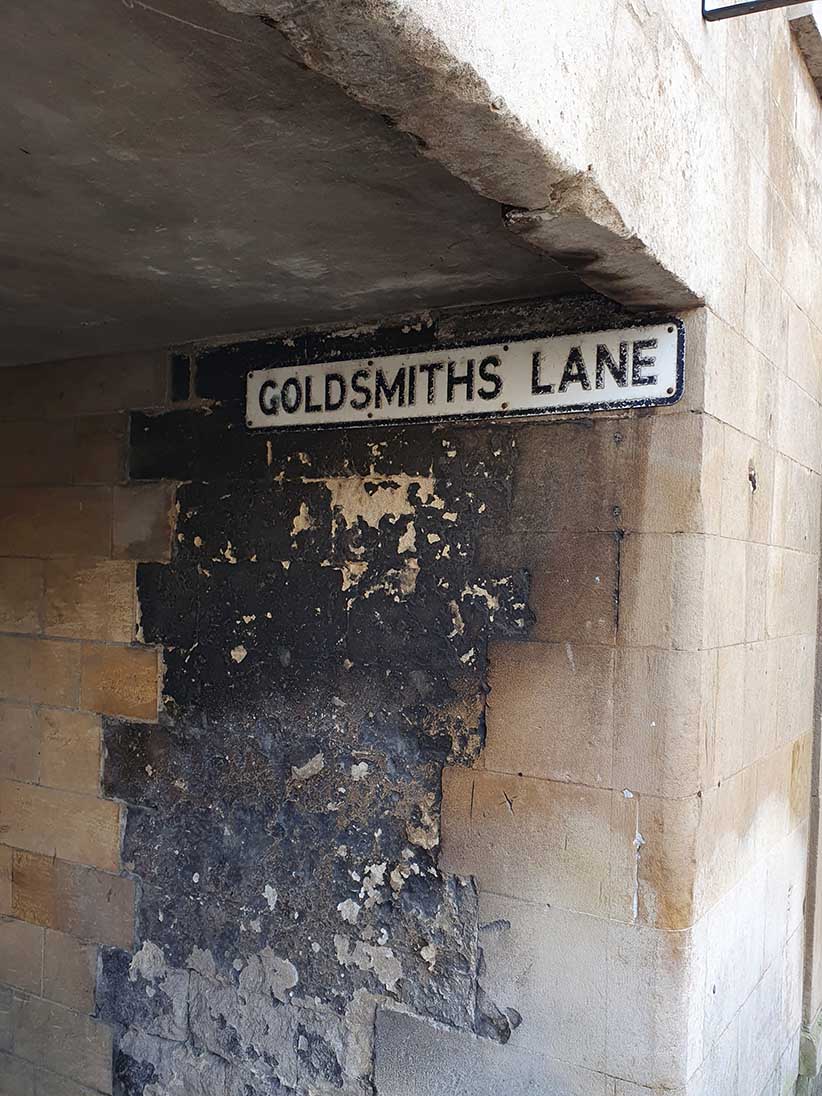
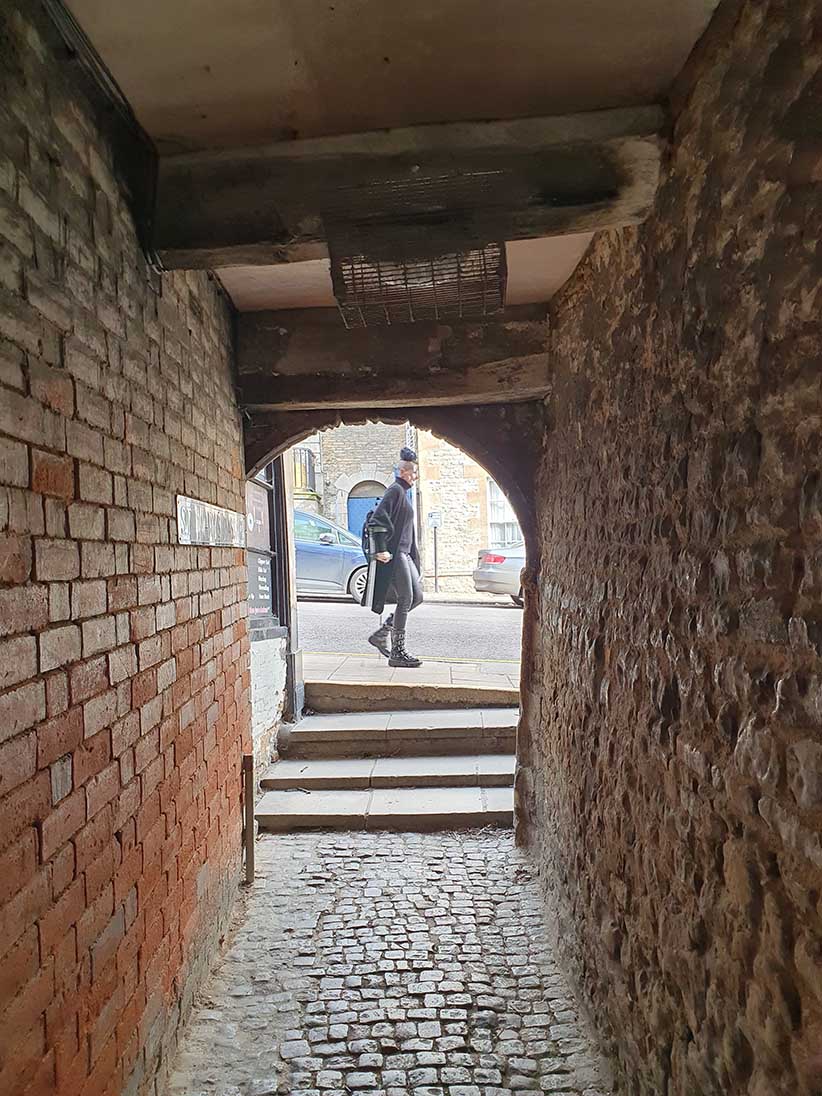
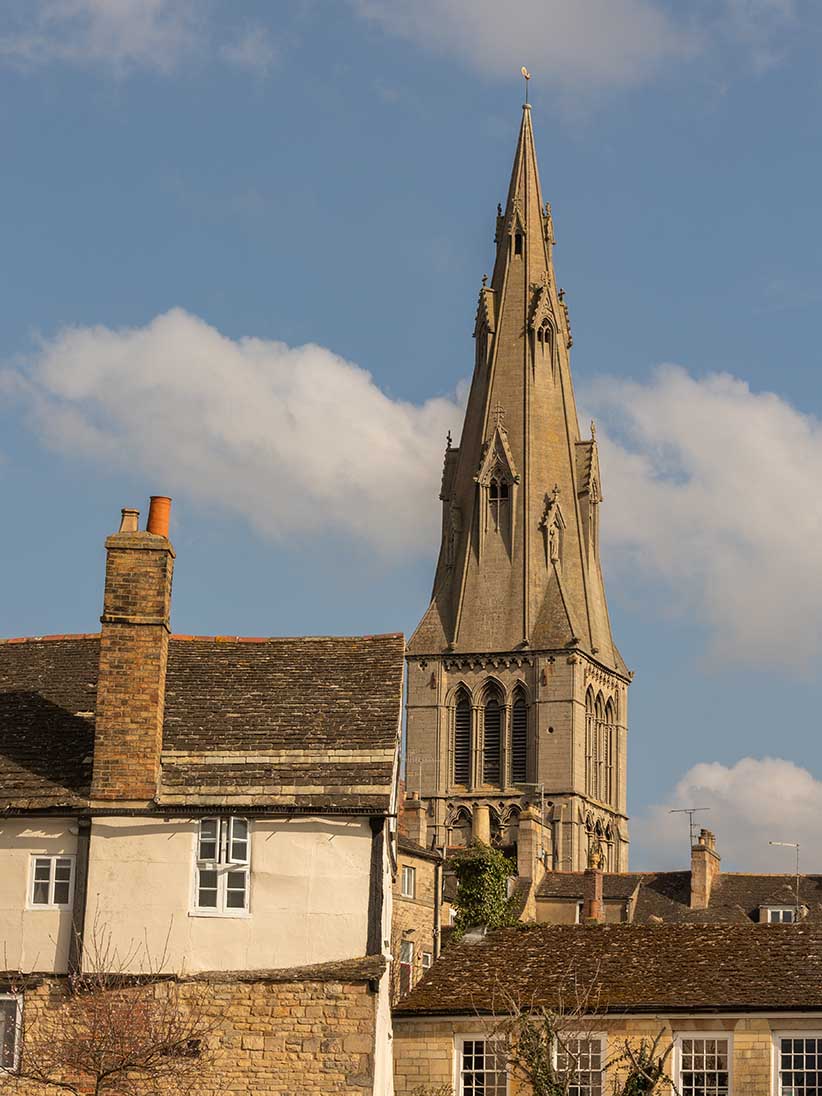
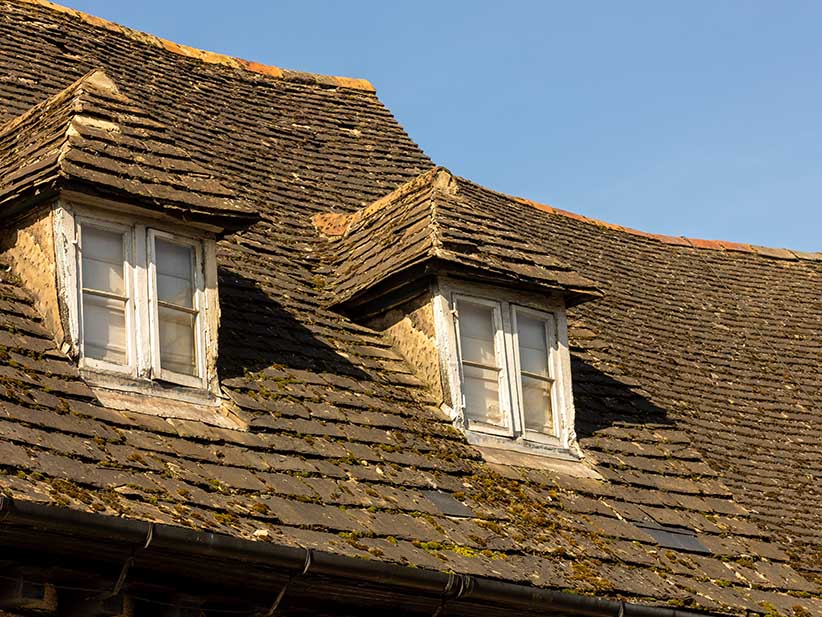
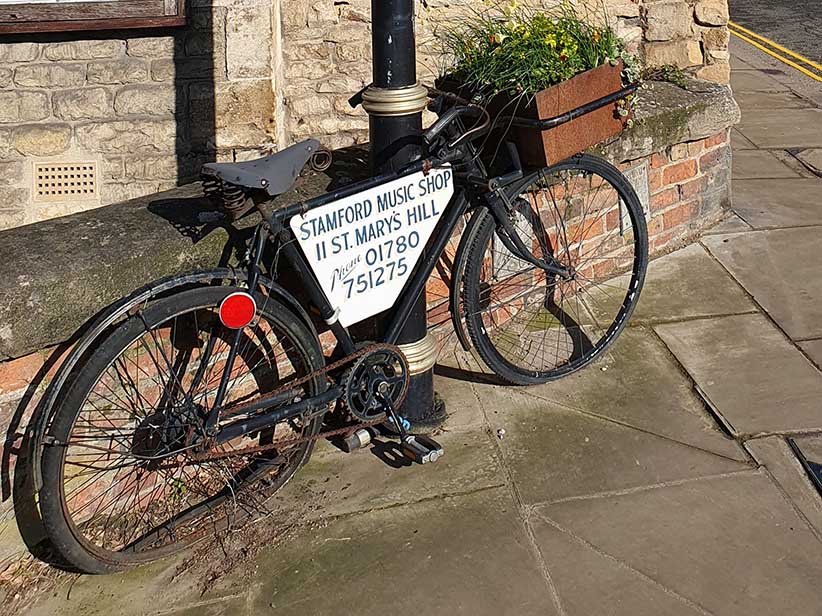
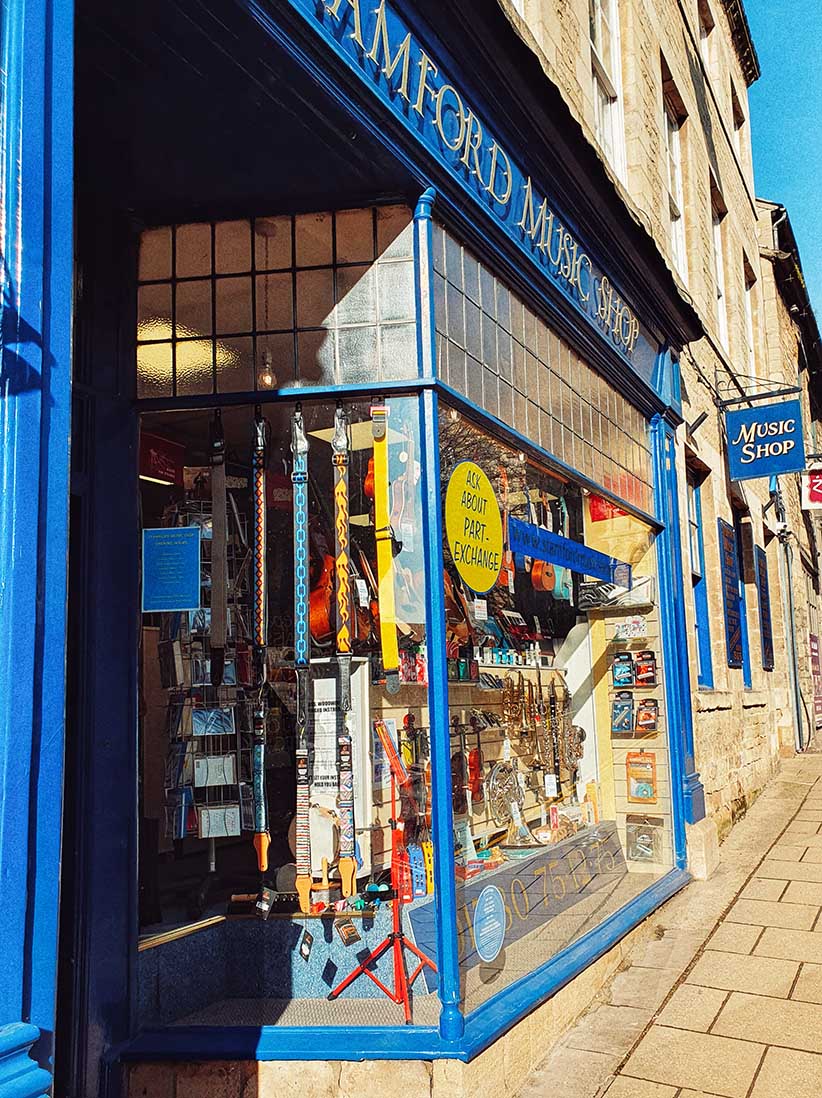
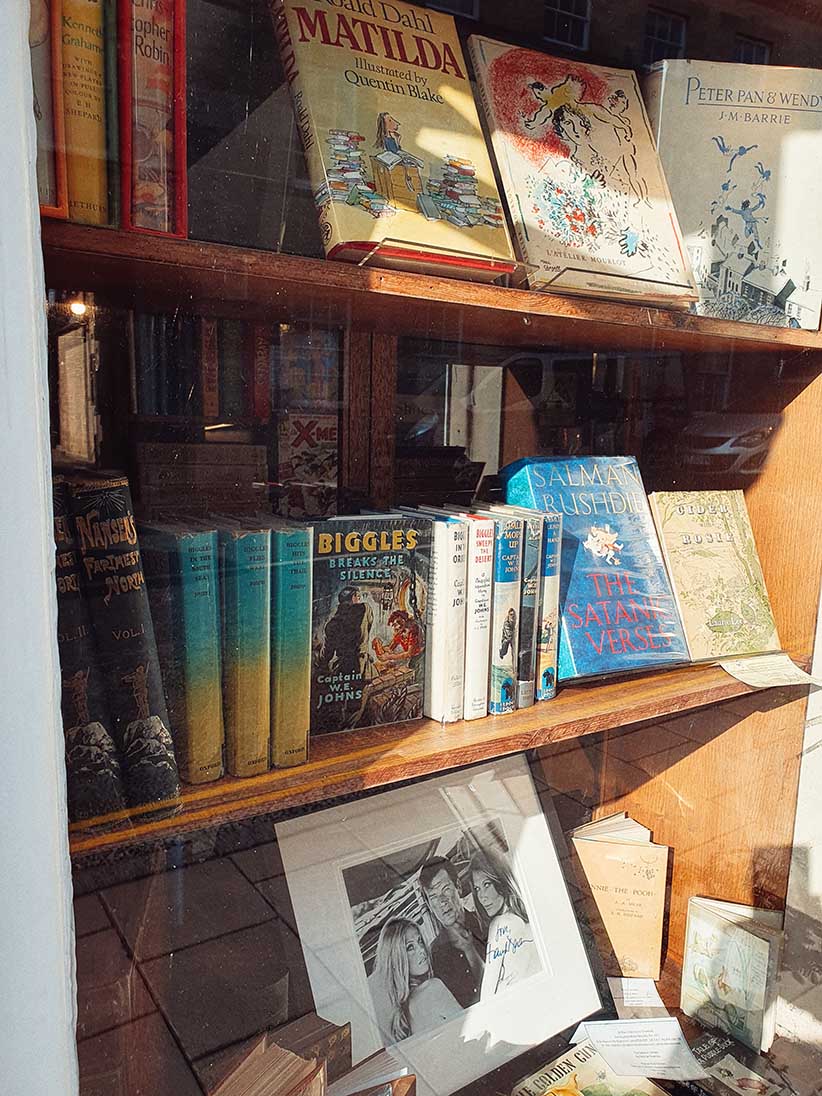
… take in the water meadows …
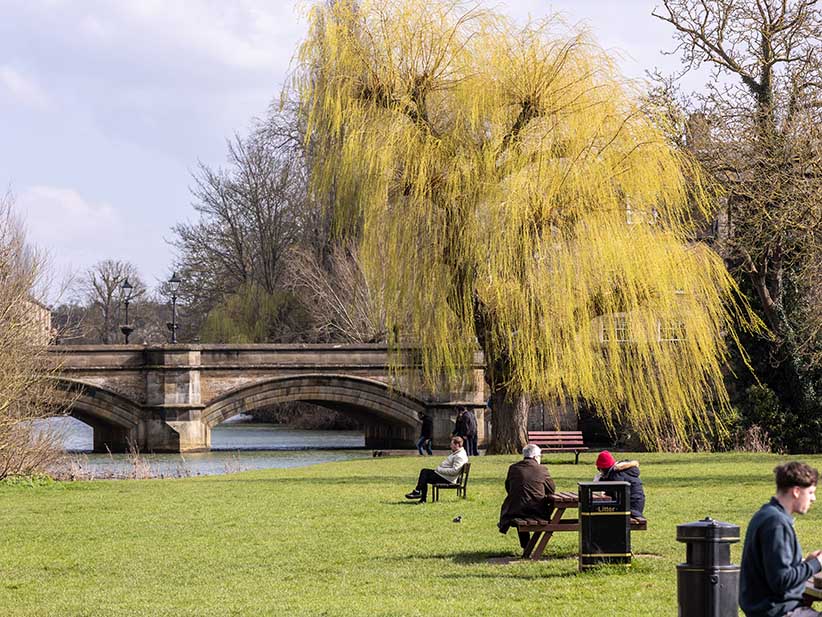
… then return to the van, up the road from this bridge. It’s just after one pm.
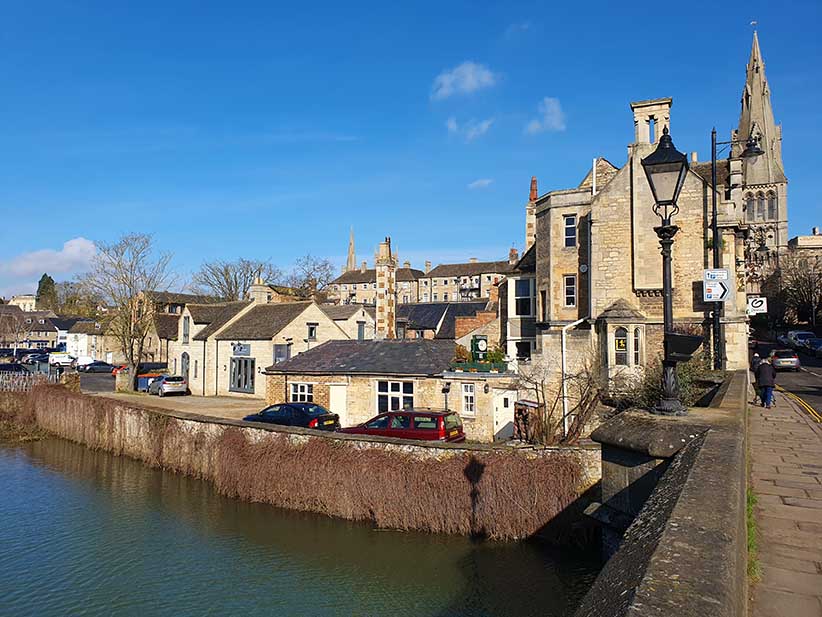
Time to go home.
* * *

But you can usually make a reasonable guess.
God and evolution aren’t mutually exclusive explanations.
In principle, no. In practice, almost always.
Love to read and see your snapshots of places you visit Phil. Makes a pleasant change from all the suffering that unfortunately dominates news feeds. Keep it up and here’s wishing you good health and best wishes .
Can’t wait for your next trip
Me either, Jim.
Loved looking at Peterborough, where I grew up, through your eyes Phil and delighted to see my Mum smiling on your blog. She thoroughly enjoyed meeting you and your conversation. Sad that I’ll miss the exhibition of watercolours by Wilfrid R. Wood as we lived very near the top of the street featured in the exhibition poster. As James says, it’s great to read something that takes us away from the horrors unfolding across the globe and reminds us of the simple joys of life.
Could have written more, Fay. Fascinating city. Like Bedford (much disdained but sporting England’s finest riverside boulevard, says I) it hasn’t the prettiness of the smaller fenland towns – Stamford on the Welland .. St Ives, St Neots, Godmanchester, Huntingdon and Ely on the Gt. Ouse .. Biggleswade on the Ivel .. Cambridge on the Cam … Bury St Ed’s on the Lark and the Linnet – but is littered with pointers to a rich and fascinating past.
(As per Wolf Hall, it’s true that a Henry VIII now wed to and tiring of Anne Boleyn had first wife Katherine of Aragon interred at Peterborough to spare the expense of a Westminster Abbey send off. How do I know? It says so in the cathedral.)
If I’d grown up in this city, as a lad I’d have been out on fen and river bank every hour I could call my own. I’m a fensman trapped in the body of a Yorkist!
PS – more fenland pictures, mainly captured from my canoe, here and here and here
What a wonderful read, and journey, thank you.
Nice of you to say so Darrin